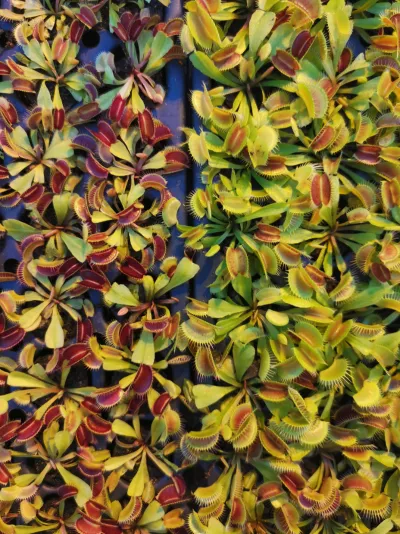General information
RDP Priority
- P2. Competitiveness
RDP Focus Area
- 2A: Farm’s performance, restructuring & modernisation
RDP Measure
- M16: Cooperation
Beneficiary type
- Operational group
Summary
This project was promoted by Algae Innovations Netherlands BV, a small company based in Zeewolde, the Netherlands. The aim of the project was to explore the positive effects of a microalgae called ‘AquaPhyto’ on plant growth as a means of replacing chemical fertilisers with this natural product.
The positive effects of AquaPhyto have already been demonstrated on a small scale. To further progress the research, the EIP Operational Group tested the functionality and reproducibility of microalgae in relation to various cultivation and crop conditions.
The test results showed that AquaPhyto is an excellent alternative to chemical fertilisers, making crop cultivation more sustainable and profitable by improving growth performance. Relevant composition analyses of the microalgae end product have been used successfully to test the consistency of the cultivation process.
Results
- The tests showed that growth performance in plants increased by up to 20%.
- The biodiversity of the soil was enhanced by generating a natural habitat in the soil.
- The production of microalgae helped fixate carbon.
- It is estimated that the new product can reduce the use of fertilisers by 50% to 100%.
Context
Nowadays, the cultivation of food crops is dominated by the use of chemical fertilisers, herbicides and pesticides. However, many people seek a more natural way of promoting plant growth.
Initial research has shown that microalgae could potentially be considered a natural alternative to chemical fertilisers. As a living organism, microalgae work through other biological mechanisms than fertilisers and chemical plant protection products by interacting symbiotically between soil (micro-organisms), environment and plants. As a result, microalgae improve the mineral availability in the soil and stimulate plants' mineral uptake.
Although research has already demonstrated the positive effects of selected microalgae on plant growth in the past, there was a need to make further progress on a larger scale, for example, to specifically test the functionality and reproducibility of this natural product in relation to various cultivation and crop conditions. As such, there was a need to demonstrate more clearly that microalgae, and particularly ‘AquaPhyto’, could be an effective alternative to existing chemical fertilisers. Key questions for the new project included whether AquaPhyto could promote sustainable, as well as profitable, crop cultivations.
It was expected that the project could be a game changer in the future of cultivation, and a patent application was made. This was confirmed (granted European patent), protecting the production method of AquaPhyto, the product, and its application as plant nutrition.
AquaPhyto is grown in sustainable cultivation, i.e. in outdoor basins in which sunlight and high-quality spring water are the main components. The production of microalgae contributes to CO2 fixation and oxygen production.
Objectives
The overall ambition of the research-based project was to support the transition from conventional crop cultivation to sustainable cultivation. The main objectives thereby were to prove the reproducibility of the microalgae product and its functionality as natural plant nutrition. It was important to demonstrate that crop cultivation can be done in a more natural way, “as nature intended”, without or with reduced use of fertilisers, herbicides and pesticides.
Activities
The project included the following key activities:
- Producing the microalgae product.
- Controlling the composition and reproducibility of the product.
- Selecting a wide range of plant species to use in the trial and tests.
- Executing a representative practical plant test at a professional grower's location.
- Investigating the effect of concentration, dosage, and frequency on growth performance.
- Measuring plant parameters to prove growth performance and compare these results with reference plants.
- Executing plant analysis by independent external qualified laboratories.
- Processing and evaluating the data.
- Explaining and disseminating the research and dissemination of the project results across the sector.
The main stakeholders involved in the project activities included plant growers (pot plants), suppliers of organic fertilisers, scientists and researchers, business support organisations, and the producers of the microalgae.
Main results
On the basis of the research findings, the following results were achieved:
- The tests showed that growth performance in plants increased by up to 20%.
- The biodiversity of the soil was enhanced by generating a natural habitat in the soil.
- The production of microalgae helped fixate carbon (microalgae contains 50% carbon, Dry Matter).
- Environmental improvement was achieved by enhancing the resilience and reduction of pesticides and herbicides.
The test results could potentially have the following likely impacts:
- The development of the new microalgae product will contribute to the improvement of the sustainability of the horticulture / agriculture sector. It is estimated that the new product can reduce the use of fertilisers by 50% to 100%.
- Economic benefits will arise from a better growth performance, reduction of growth cycle, fewer losses and higher plant quality.
- As a new field of scientific and practical research and through the implementation of the product in crop cultivation, jobs are likely to be created in the future.
- Following the project, negotiations were ongoing with representatives from Italy (Sardegna) and Spain to investigate the possibilities for cooperation in setting up a pilot plant under local conditions abroad.
Key lessons
- Plant growers believe in ‘seeing is believing’. Without demonstrable evidence of growth improvement in their plants and at their location under their own specific conditions, farmers are unlikely to take up innovations.
- This project showed that with a lot of effort, tenacity, the right collaborating partners, and faith in the intended invention, a transition to a sustainable crop cultivation can be initiated.
AquaPhyto stimulates soil life. The roots become more active so that the plant absorbs more nutrients. Thanks to the micro-algae, the plants are greener, have grown better and are up to 15% heavier. AquaPhyto provides a natural soil life in which the plant demands and the soil supplies and vice versa. A fascinating process, from which much can still be expected.

